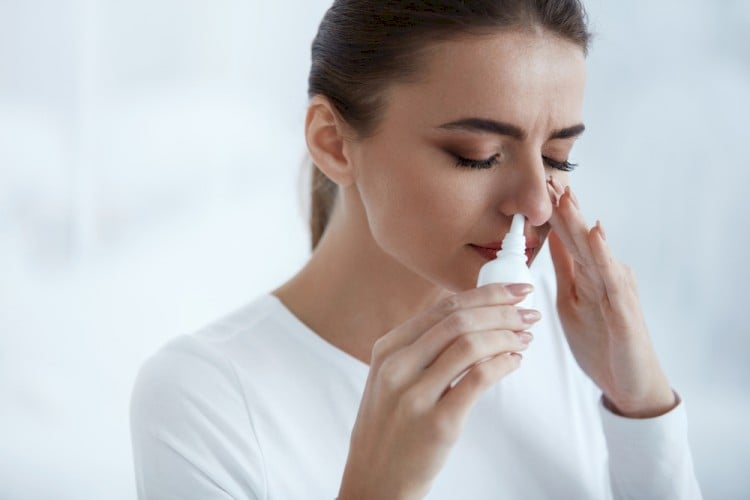Budesonide and fluticasone are active ingredients used in some nasal sprays, such as Rhinocort and Flonase, to treat symptoms related to nasal congestion, sneezing, runny nose, and itchy nose. These medications can be bought over the counter to treat your nasal symptoms. Budesonide and fluticasone are very similar ingredients. However, they may affect your body differently. We’re here to compare both ingredients to help you determine which medication will work best for you.
Characteristics of Budesonide
Budesonide is found in some allergy medications such as Rhinocort. The ingredient helps relieve allergies due to indoor and outdoor allergens. It provides 24-hour nasal allergy relief. Budesonide is a preferred ingredient in nasal sprays because it is alcohol and scent free. Certain scents can irritate some individual’s allergies even more.
Budesonide is recommended for patients with pollen allergies. In a 1997 research study comparing budesonide and fluticasone, researchers found that budesonide was more effective in reducing sneezing around pollen. However, the same study found that both active ingredients were effective in the treatment of seasonal allergic rhinitis.
Budesonide is also effective in preventing nasal polyps from returning after sinus surgery. This active ingredient has many advantages, but it is not without side effects. Common side effects include:
- nose/throat dryness or irritation
- sore throat or cough
- sneezing
- nosebleeds
- unpleasant taste/smell
- sores inside or around your nose
- pain, swelling, burning, itching, or irritation around your nose
You should not use budesonide in children younger than six years old. The ingredient is also not recommended for patients taking certain antibiotics or antidepressants as it can interact with other ingredients. It’s important to disclose all medical conditions with your doctor.
Characteristics of Fluticasone
Fluticasone is found in Flonase nasal sprays. Based on the Cumulative IMS Prescription Data of 2003-2014, fluticasone has been prescribed more than budesonide. This may be because of fluticasone’s effectiveness in treating more symptoms including itchy and watery eyes. It can also be used in children four years of age and older. This makes the medicine available to children of a younger age.
A 2007 research study, concluded that fluticasone is fast-acting with drastic allergy improvements in eight hours. The medicine also provides 24-hour symptom control. When taking fluticasone daily, patients will get long-lasting allergy relief.
While fluticasone is highly recommended by many doctors, it also has some side effects including:
- Headache
- Nosebleed
- Burning or irritation in the nose
- Runny nose
- Bloody mucus in nose
- Cough
- Nausea
- Vomiting
- Stomach pain
- Diarrhea
- Dizziness
In rare cases, fluticasone may also cause some patients to develop glaucoma or cataracts, particularly if they are at risk for developing such conditions. Other medical conditions may develop from continued use of fluticasone. It is not recommended to take this medication every day for extended periods of time. Consult with your doctor about the length of time you should be taking fluticasone.
Which Active Ingredient Is Right For Me?
Budesonide and fluticasone may both be effective in treating your nasal symptoms. There are advantages and disadvantages of the ingredients, so you should discuss your options with your physician. The allergists at NY Allergy & Sinus Centers will talk you through your treatment plan and explain any side effects you may experience. It’s important to ask your allergist if you are using the proper technique to administer your nasal spray, no matter which active ingredient it contains; this may help you achieve the best results for symptom relief and minimize some unwanted side effects. Call (212) 686-6321 to schedule an appointment with one of our board-certified allergists.
Meet The Physician Collaborator
Dr. Tehila Saadia is a physician specializing in both Pediatric and Adult Allergy & Immunology. She treats a wide variety of allergic and immunologic disorders, with a special interest in food allergies, contact dermatitis and urticaria (hives). She is Board Certified by the American Board of Pediatrics. You can schedule an appointment with Dr. Saadia by calling (212) 686-6321 or visiting one of our locations.

